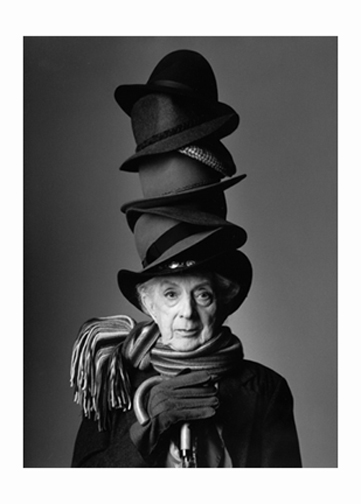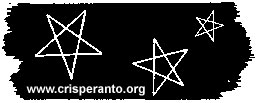

THE QUENTIN CRISP ARCHIVES
|
WRITINGS BY QUENTIN CRISP |
|
|
The Archives has gathered various writings, published and unpublished, by Quentin Crisp and is preparing them for publication in Mr. Crisp's final book, The Dusty Answers, and will share excerpts online here at Crisperanto.org. However, due to the book's eventual publication, only a few examples from The Dusty Answers can be available. Happily, though, other excerpts from Mr. Crisp's published works will soon be available for your reading pleasure, depending on copyright approval and respect thereof.
Mr. Crisp carefully collected many of his manuscripts and printed articles and stored them on the floor under his bed and beneath the refrigerator stand at the foot of his bed. They were easily found and rescued from the garbage pile during the deconstruction of his apartment—a difficult but necessary task performed by Phillip Ward and Charles Barron in December 1999 and January 2000. Aside from stirring up the years of happy-and-settled dust, they had to be careful in discarding anything that may not have looked worthy to save. Mr. Crisp scribbled on all sorts of scrap paper, and used newspapers to hide items from individuals who visited his room or from careless film crews rummaging about his space. He was very aware of how film crews wrecked his room, which made it difficult for him to maneuver around in the end. His living space may have looked disorderly and filled with years of grime, but Mr. Crisp knew his apartment well and he knew the placement of every item contained therein. During the late 1980s and 1990s, Quentin Crisp often dictated to Phillip Ward whenever he needed something typed, either by telephone or by tape recorder. This included personal correspondence, movie reviews, newspaper articles, magazine and book essays, Internet communications (including his very own e-mail at AOL which Mr. Ward maintained), and much, much more. Once typed out and presented on paper or available for reading on the Demon Machine's screen, Mr. Crisp would edit his material right there while Mr. Ward entered Quentin’s immediate corrections into the computer. (For those who may not know, Mr. Crisp always referred to the computer as the Demon Machine. Mr. Ward's large monitor permitted large-type viewing for Mr. Crisp, thus making reading the text much easier and more comfortable for him.) The two men worked together on various projects over the years of their friendship and, in doing so, provided the world fresh Crisperanto that otherwise may not have seen the light of day. In the early nineties, Quentin Crisp lost use of his left hand due to illness. He was unable to type, thus unable to present copy for editors and publishers wishing articles from him. It was not comfortable for him to use the machine. It was too difficult to manage. Yet, he could still scribble his pieces on paper. However, his handwriting was often difficult to decipher and many times, once published, not correctly printed or even in his voice. (Oftentimes, if he could not provide the written word, Mr. Crisp would dictate his message via telephone to a typist at the other end of the line. The editor would edit the article to his satisfaction—often losing the "voice" of Quentin Crisp in the transition.)  Phillip Ward offered to assist and help make Mr. Crisp more available to those who requested his writings, and without pain or difficulty for Mr. Crisp. It worked. Mr. Crisp was extremely happy that he could still provide something to those who requested it. He simply did not want to disappoint any request or any individual. In doing so, he also created new material for his final book, which he worked on with determination and fury. He sensed that The Dusty Answers was going to be his final offer to the world, so he collected together many essays, articles, reviews and criticisms, as well as his poetry to comprise the meat of what he envisioned to become his last offer to his life's legacy. Despite this, he continued to write new material up to the night before his departure to Manchester, England, where he died on November 21, 1999, where he was to begin a one-month run of reworked one-man show, An Evening with Quentin Crisp, one last itme in his homeland, which he left for at age 72 for the golden streets of New York City. Phillip Ward offered to assist and help make Mr. Crisp more available to those who requested his writings, and without pain or difficulty for Mr. Crisp. It worked. Mr. Crisp was extremely happy that he could still provide something to those who requested it. He simply did not want to disappoint any request or any individual. In doing so, he also created new material for his final book, which he worked on with determination and fury. He sensed that The Dusty Answers was going to be his final offer to the world, so he collected together many essays, articles, reviews and criticisms, as well as his poetry to comprise the meat of what he envisioned to become his last offer to his life's legacy. Despite this, he continued to write new material up to the night before his departure to Manchester, England, where he died on November 21, 1999, where he was to begin a one-month run of reworked one-man show, An Evening with Quentin Crisp, one last itme in his homeland, which he left for at age 72 for the golden streets of New York City.Quentin Crisp was an artist on many fronts, including being a prolific writer for books, newspapers, magazines, journals, as well as copy for book jacket covers. With this, he wrote introductions, forewords, and afterwords to several books. The Archives plans to gather them together and have available for reading at Crisperanto.org. The first is listed below, and others will be listed as they become available. Scot D. Ryersson and Michael Orlando Yaccarino, authors of Infinite Variety: The Life and Legend of the Marchesa Casati, write about their meeting with Quentin Crisp in An Unforgettable Legend. Quentin Crisp wrote the Foreword to their incredible Infinite Varitey. "What Does It Mean To Be Human?" (from The Dusty Answers) and "Do You Believe in God" are two essays written by Quentin Crisp and were printed in the tribute booklet presented to audience members at An Evening for Quentin Crisp, Mr. Crisp's memorial held at Cooper Union's Great Hall in March 2000. Also included is his poem, "I Will Write Music." (from Dusty Answers). "Do You Believe In God" is from The Wit and Wisdom of Quentin Crisp (1984), edited by Guy Kettelhack. |
|
|
|
|
|
|
|
Photograph copyright © by Joseph Mulligan. All rights reserved. All text for The Last Work (formerly The Dusty Answers) is copyright © 1999–2016 by Quentin Crisp and Phillip Ward. All rights reserved, including reproduction in any form, and may not be used without permission.   Site Copyright © 1999–2016 by the Quentin Crisp Archives All rights reserved. |